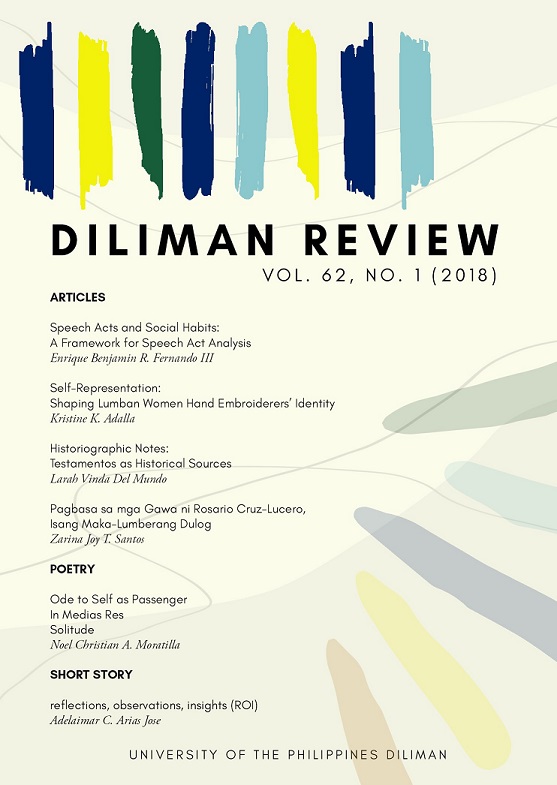SPEECH ACTS AND SOCIAL HABITS: A Framework for Speech Act Analysis
Abstract
Early twentieth century analytic philosophers held that ordinary language was imprecise and prone to philosophical confusion. To separate scientific fact from metaphysical fiction, their project was to build an ideal logical language that was designed to accurately describe and mirror reality.J.L. Austin challenged this approach with a strikingly simple observation: that we do things with words other than describing the world, such as commanding subordinates, telling a joke, testifying in court, and marrying another person. Austin referred to these uses of language as “speech acts”: actions that are successfully performed by virtue of uttering certain words. Unlike his predecessors, Austin gave importance to human conversations by studying them in their variety, complexity, and use in ordinary life.
The paper presents a framework that breaks down speech act situations into four aspects—speakers, conventions, word-use, and audiences. The framework also illustrates how social habits influence the use and interpretation of language.
Further, it suggests how a variety of linguistic puzzles with legal, social, and cultural implications can be resolved through speech act analysis.
It concludes with a brief discussion of Yoshitake’s critique that Austin’s Speech Act Theory is speaker-centric, and should thus be modified to account for how audiences interpret what they hear. I argue that Yoshitake mischaracterizes Austin’s analysis of communication, and that my framework withstands his objection.
Key Words: J.L. Austin, Philosophy of Language, Speech Acts, Social Habits, Performative Utterances
Published
2020-12-20
How to Cite
FERNANDO III, Enrique Benjamin R..
SPEECH ACTS AND SOCIAL HABITS: A Framework for Speech Act Analysis.
Diliman Review, [S.l.], v. 62, n. 1, dec. 2020.
ISSN 0012-2858. Available at: <https://journals.upd.edu.ph/index.php/dilimanreview/article/view/7376>. Date accessed: 02 sep. 2025.
Issue
Section
Articles


